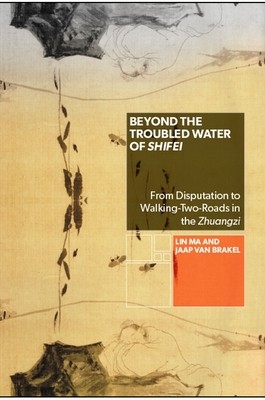
- We will send in 10–14 business days.
- Author: Lin Ma
- Publisher: State University of New York Press
- ISBN-10: 1438474822
- ISBN-13: 9781438474823
- Format: 15.2 x 22.6 x 2 cm, minkšti viršeliai
- Language: English
- SAVE -10% with code: EXTRA
Reviews
Description
In recent decades, a growing concern in studies in Chinese intellectual history is that Chinese classics have been forced into systems of classification prevalent in Western philosophy and thus imperceptibly transformed into examples that echo Western philosophy. Lin Ma and Jaap van Brakel offer a methodology to counter this approach, and illustrate their method by carrying out a transcultural inquiry into the complexities involved in understanding shi and fei and their cognate phrases in the Warring States texts, the Zhuangzi in particular. The authors discuss important features of Zhuangzi's stance with regard to language-meaning, knowledge-doubt, questioning, equalizing, and his well-known deconstruction of the discourse in ancient China on shifei. Ma and van Brakel suggest that shi and fei apply to both descriptive and prescriptive languages and do not presuppose any fact/value dichotomy, and thus cannot be translated as either true/false or right/wrong. Instead, shi and fei can be grasped in terms of a pre-philosophical notion of fitting. Ma and van Brakel also highlight Zhuangzi's idea of "walking-two-roads" as the most significant component of his stance. In addition, they argue that all of Zhuangzi's positive recommendations are presented in a language whose meaning is not fixed and that every stance he is committed to remains subject to fundamental questioning as a way of life.
EXTRA 10 % discount with code: EXTRA
The promotion ends in 22d.13:06:46
The discount code is valid when purchasing from 10 €. Discounts do not stack.
- Author: Lin Ma
- Publisher: State University of New York Press
- ISBN-10: 1438474822
- ISBN-13: 9781438474823
- Format: 15.2 x 22.6 x 2 cm, minkšti viršeliai
- Language: English English
In recent decades, a growing concern in studies in Chinese intellectual history is that Chinese classics have been forced into systems of classification prevalent in Western philosophy and thus imperceptibly transformed into examples that echo Western philosophy. Lin Ma and Jaap van Brakel offer a methodology to counter this approach, and illustrate their method by carrying out a transcultural inquiry into the complexities involved in understanding shi and fei and their cognate phrases in the Warring States texts, the Zhuangzi in particular. The authors discuss important features of Zhuangzi's stance with regard to language-meaning, knowledge-doubt, questioning, equalizing, and his well-known deconstruction of the discourse in ancient China on shifei. Ma and van Brakel suggest that shi and fei apply to both descriptive and prescriptive languages and do not presuppose any fact/value dichotomy, and thus cannot be translated as either true/false or right/wrong. Instead, shi and fei can be grasped in terms of a pre-philosophical notion of fitting. Ma and van Brakel also highlight Zhuangzi's idea of "walking-two-roads" as the most significant component of his stance. In addition, they argue that all of Zhuangzi's positive recommendations are presented in a language whose meaning is not fixed and that every stance he is committed to remains subject to fundamental questioning as a way of life.


Reviews